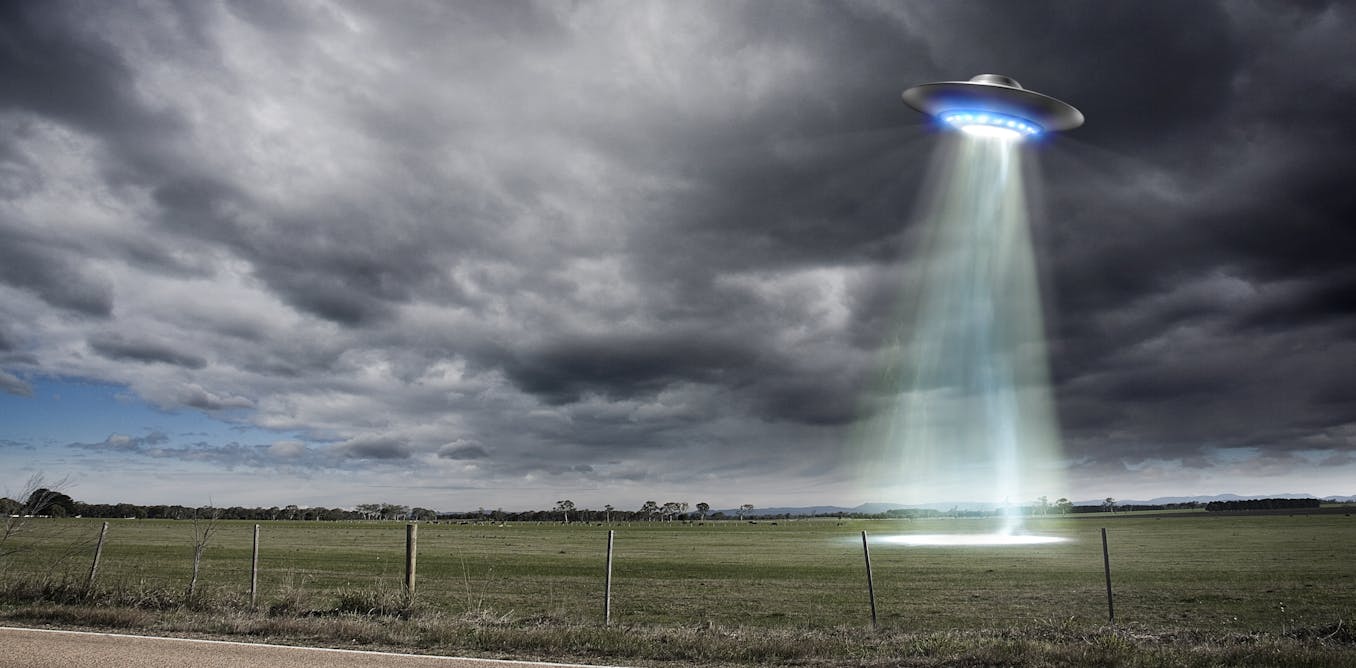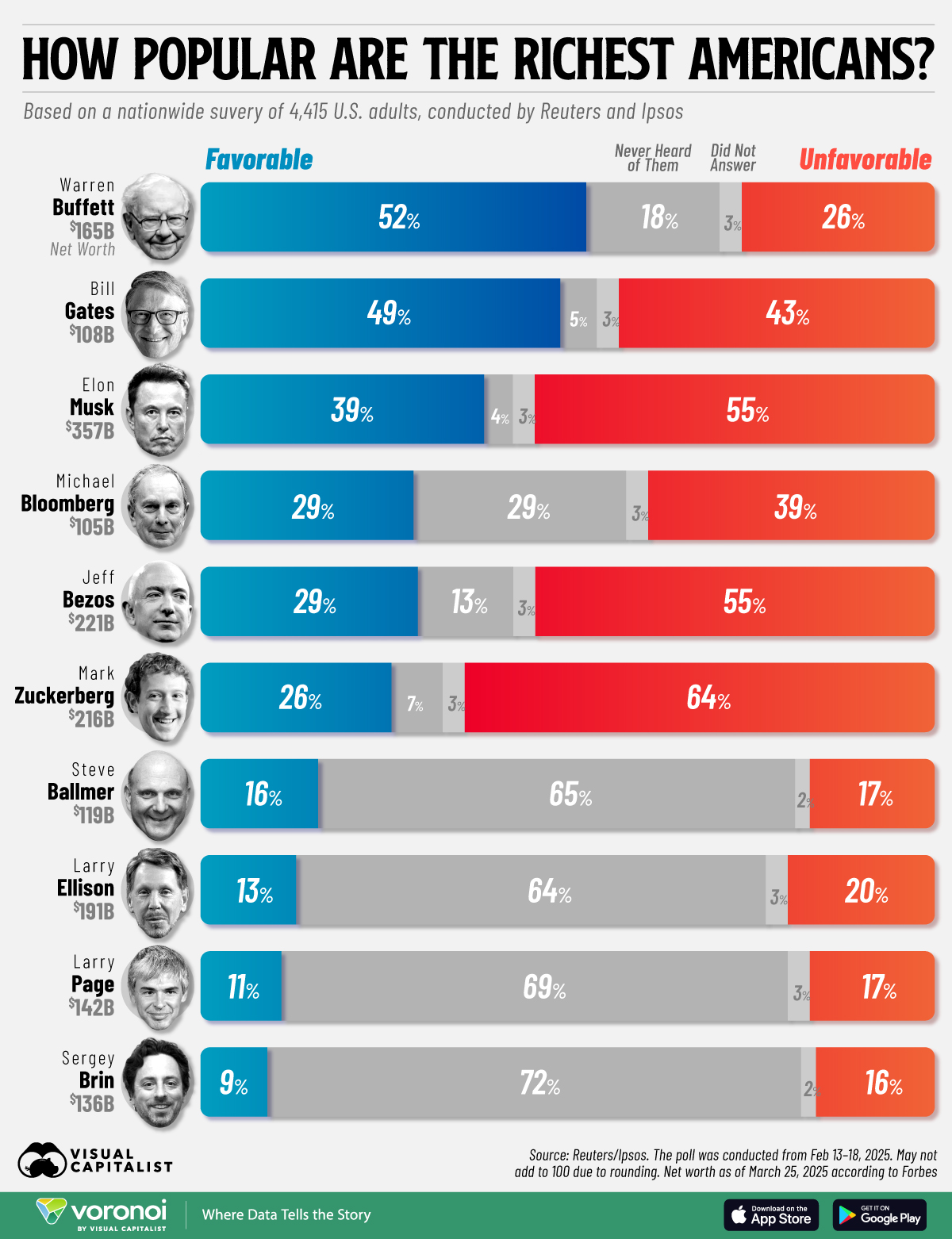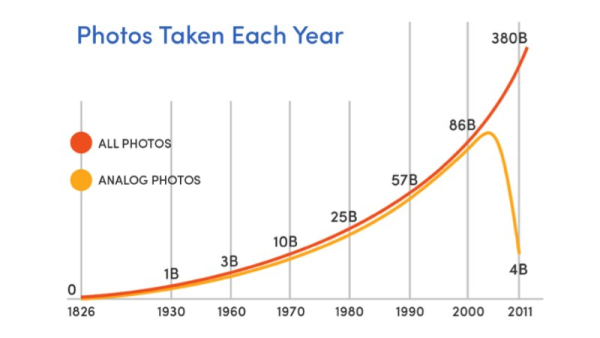Wealth is fascinating to those who have it, those who want it ... and even those who don’t.
When Forbes published its first World’s Billionaire List in 1987, 140 billionaires accounted for a total of $295 billion in global wealth. Topping that list was Yoshiaki Tsutsumi from Japan, with $20 billion. A lot has changed since then. Elon Musk topped this year’s Forbes List and is now worth over $342 billion. His wealth is about 21 times more than Tsutsumi’s ... and over two million times more than the average American family’s.
A New Gilded Age
In 2017, The Guardian released an article stating that the world’s super-rich held the greatest concentration of wealth since the turn of the 20th century. According to The Guardian, 1,542 billionaires held approximately $6 trillion in collective wealth, which would put them as the fifth largest GDP at the time.
Last year, less than a decade since the Guardian’s article, Forbes estimated that 2,781 billionaires had a combined net worth of over $14 trillion. For a little more context, some estimate that the world’s richest 1% own more than 43% of global financial assets.
In comparison, the first Gilded Age was established by a few entrepreneurs controlling monopolies in US rail, oil, steel, and banking.
The image is “Bosses of the Senate”.
The Vanderbilts amassed $185 billion (adjusted for inflation) from their railroad empire. Andrew Carnegie made $309 billion from his steel empire. John D. Rockefeller made $336 billion from an oil empire (that controlled about 90% of the American oil business). They were the stars of the Gilded Age ... and their control over major industries led to some of the largest individual fortunes in American history compared to the average population.
It’s interesting to look at the transition from the richest in the late 1800s to the richest in 2025 ... the transition from industries like Steel, Oil, and Rail, into companies like Amazon, Microsoft, Tesla, and Walmart. While they certainly dominate the spaces they’re in, it is a far cry from the monopolies of the 1800s.
While there are more “super-rich” individuals today than before, our wealthiest individuals still manage to have some impressive stat lines. As of the end of 2024, Bernard Arnault was worth an estimated $233 billion. Elon Musk was worth around $195 billion, and Jeff Bezos was right behind at $194 billion. Today, Bernard is sitting at $178 billion, Elon is up to $342 billion, and Jeff is up to $215 billion. Arnault is a clear example of how Trump’s tariff announcement impacted billionaires.
With the AI gold rush in full swing, it will be interesting to see who gets added to the list in the coming years.
Let me know when your name makes that list. I’ll do the same.





What Do You Do When AI is Better Than You?
When Beethoven was at the peak of his career, several of his contemporaries struggled to deal with the realization that they may never create anything that lived up to his creations. Brahms, for example, refused to make a symphony for 21 years. Schubert is quoted as saying, “Who can ever do anything after Beethoven?”
We’re seeing the same effect as a result of Artificial Intelligence.
via visualcapitalist
The gap between human and machine reasoning is narrowing fast. I remember when AlphaGo, an AI program created by Google’s DeepMind, finally got better than humanity at Go. It was a big deal, and it prompted us to think seriously about competition in a post-AI world. If you can’t be the best, is it still worth competing? To one former Go champion, it wasn’t. He retired after “declaring AI invincible.”
Over the past few years, AI systems have advanced rapidly, surpassing humans in many more tasks. Much like Beethoven, AI is discouraging competition.
Was Lee Sedol, the former Go champ, wrong to quit? It’s hard to say ... but as AI gets better at more activities, it’s an issue we’ll encounter more often.
There’s always someone (or something) better. Taking a purely utilitarian approach isn’t always necessary or productive. It often helps to take a longer view of the issue.
Sometimes, it's okay to just do something because you enjoy doing it.
Sometimes you have to “embrace the suck” and be willing to put in the work to learn, grow, and progress.
Sometimes, you need to invest effort in understanding a process better to determine whether others (or automation) are achieving the right results.
The most successful people I know don’t try to avoid things with powerful potential. Instead, they leverage those things to achieve more and become better.
I advocate intelligently adopting AI, in part, because I expect the scale of AI’s “wins” will skyrocket. That means I know AI will soon be better than I am at things I do now.
It doesn’t mean I should give up. It means I have to raise the bar to stay competitive.
I have another belief that helps here. What if you believed, “The game isn’t over until I win ...”? With that belief in place, I won’t let a 2nd place ceiling stop me if something gives me energy. AI may change how I play the game ... or even what game I choose to play ... but I will still choose to play.
What Happens to Human Work When Machines Get Smarter?
AI is changing the playing field at work, too.
As a result, some say that AI-driven job displacement is not a future threat but a present reality.
This past week, several prominent CEOs publicly mandated AI use, marking a shift to “AI-first” work culture, which prioritizes and integrates AI into the core of an organization’s strategy, operations, and overall culture.
Here is what I think (and you've probably heard me say this before):
Let’s face it, doing more with less is a core goal and strategy in business.
But that doesn’t mean humans are doomed. There are lots of historical parallels between AI integration and past technological revolutions. If you think about AI as a transformative force, you can hear the echoes of historical shifts that redefined work practices and intellectual labor (like the printing press, the calculator, or the internet).
In the age of AI, success doesn’t come from battling technology — it comes from embracing our uniquely human powers and building systems that let those powers shine.
AI is coming - but it doesn’t have to be joy-sucking. Ideally, it should free you up to do MORE of the things that bring you joy, energy, and satisfaction.
Onwards!
Posted at 10:12 PM in Art, Books, Business, Current Affairs, Film, Gadgets, Games, Healthy Lifestyle, Ideas, Just for Fun, Market Commentary, Music, Personal Development, Trading, Web/Tech, Writing | Permalink | Comments (0)
Reblog (0)